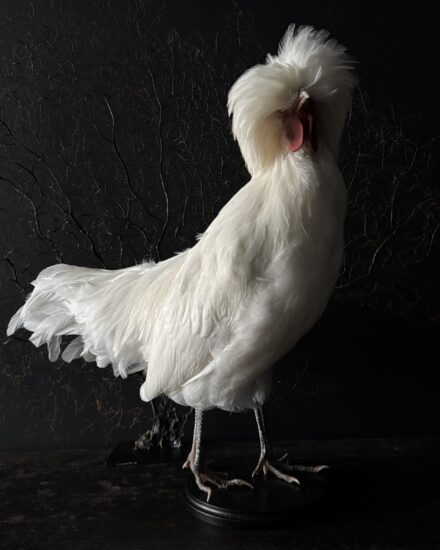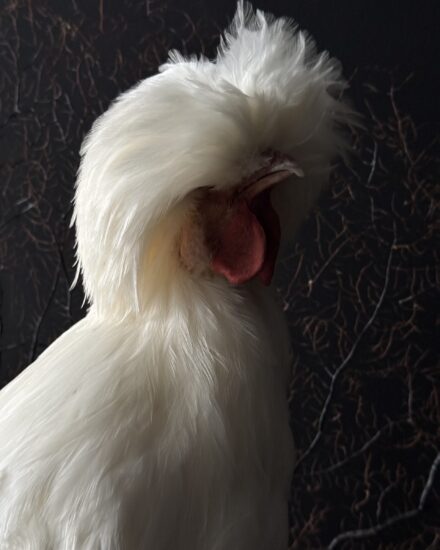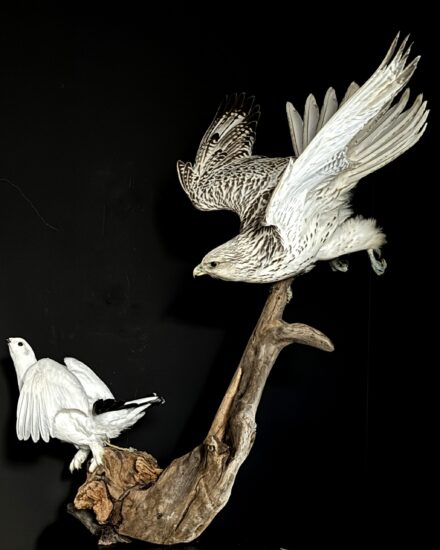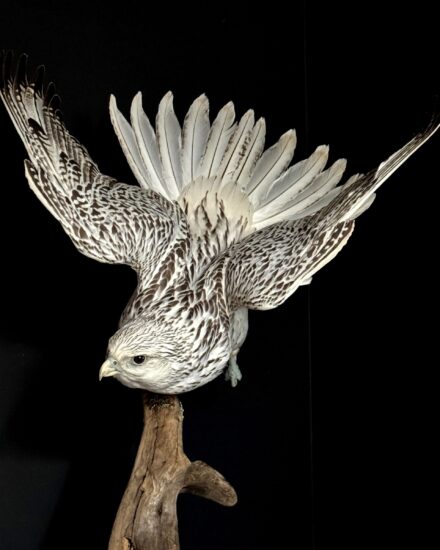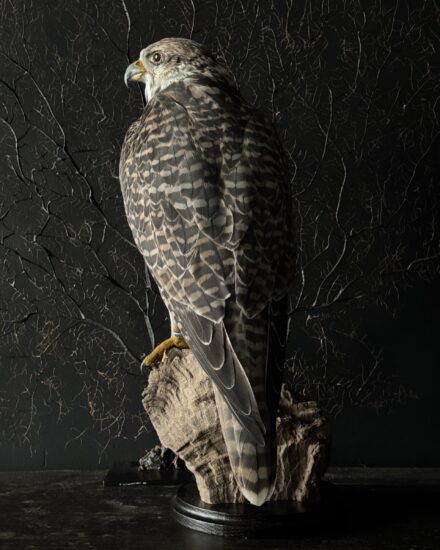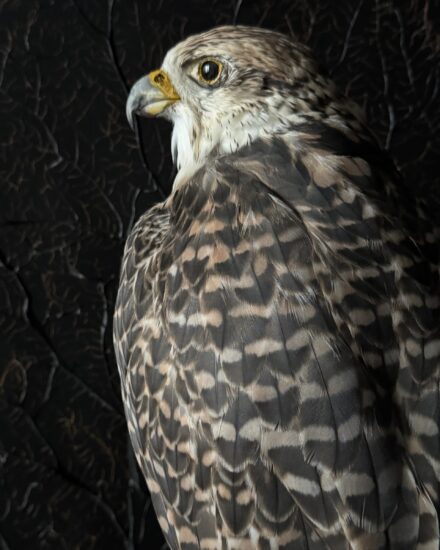SOLD
Taxidermy Onagadorie rooster.
Onagadori (Japanese: 尾 長 鶏) is a breed of chicken from Kochi Prefecture in Japan that not infrequently loses tail and saddle feathers due to the presence of the Gt gene. Onagadoris in Japan Onagadoris have been known since the Edo era, when farmers in the village of Osasa (in present-day Kochi Prefecture) began breeding roosters with extremely long tails. Although the breed was declared a national cultural property in 1923 [1], the number of animals dropped to nine. After World War II, the breed continued to be bred, with the export of animals or eggs prohibited. Characteristics The most striking feature of the onagadori is the extremely long tail, due to the action of the autosomal dominant Gt gene and to a lesser extent the recessive mt gene. Homozygous animals with the Gt gene have the maximum tail growth. [2] The breed occurs in partridge, silver partridge, yellow partridge and white. It has the shape of a grouse and is relatively light in weight (the roosters up to 1.8 kg). Breeding outside Japan Before 1900, onagadoris were introduced to Europe and, despite the export ban, again from the 1970s. Several strains originated in the Netherlands, Germany, and the United States. Because many strains suffered from a genetic weakness, crossbreeding with other breeds took place, such as Totenko's, white bucks and especially the German Phoenix hen.
Mounted rooster
€575,00
Out of stock
- Length: 50 cm
- Depth: 30 cm
- Height: 70 cm







